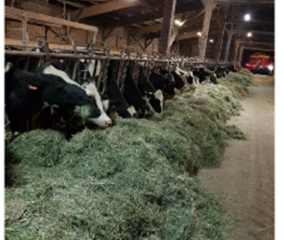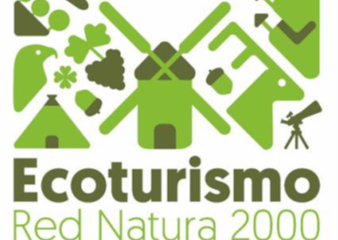Germany
Introduction
CoLabora was an European cooperation project dealing with coworking in rural areas and gathered seven Local Action Groups across the EU, all located in rural areas. The partners were convinced that coworking spaces can contribute to rural areas’ development. This new model of places designed for professionals offers the opportunity to efficiently work where they choose to live, without the need to move away from their rural environment. In that way, coworking helps to maintain the working population in rural areas as well as it encourages new people, keen to a better quality of life, to move in. Moreover, coworking spaces offer digital and technical tools, support to entrepreneurs and a collaborative network of professionals which contribute to stimulate each one’s economic activity. Given these expected positive impacts for rural areas, the seven partners decided to pool their competences and experiences to help each other to go further in the development of coworking. From 2018 to 2022, partners carry out study trips and collaborative work in order to create a methodological toolbox designed to raise awareness of the benefits of coworking in rural areas and enable anybody interested in setting up and running coworking spaces.
Presentation of the project
CoLabora was an European cooperation project dealing with coworking in rural areas and gathered seven Local Action Groups across the EU, all located in rural areas. Among the cooperating regions, there were either areas really close to urban areas or areas located in very rural regions. But coworking was seen as a catalyst for regional development and a chance to stimulate economic development and innovation in rural areas, to attract new inhabitants coming from cities in order to improve their quality of life, to retain people (especially young people) and activities in rural areas, to attract new coworkers in existing coworking spaces and to improve the quality of life for inhabitants, including balance between professional and personal life, new services providing. But cooperation partners were at different stages of developing coworking spaces. Some had already developed several coworking spaces. Others had created a coworking space but without coworkers. And others had not developed coworking spaces.
That is why Colabora aimed to explain the coworking concept and disseminate its benefits and the opportunities but also to get to know and stimulate the community of professionals, freelance and local entrepreneurs, to promote their interrelationship and networking, to develop coworking in rural areas, to extend the provided services by coworking spaces, to formalize a process to create a coworking space, step by step, and providing some concrete tools to manage the coworkers community an to learn from best practice from different coworking spaces in Europe.
CoLaboras’ main result:
- Collection of good coworking examples all over the EU
- Coworking toolkit
- Training modules for community builders
- Compiling the benefits of coworking spaces in rural areas
- Logo development
- Explanatory video on rural coworking in different languages
CoLaboras’ further impacts :
- LAG Pays de Guéret: Hiring a coworking manager
- LAG Association Pieriga Partnership & LAG Zied Zeme: Opening of the co-working space “CoLabora Lielvarde”
- LAG Consorci Intercomarcal d’Iniciatives Socioeconòmiques: Webinars & training for new coworking spaces and elaboration of a new social media campaign
- LAG Leipziger Muldenland: Coworking Network & Pop-up Coworking Test Phase LAG Donegal: Opening of four coworking spaces
- LAG Vale of Glamorgan: Coworking festival
The cooperation project was funded by LEADER as a transnational cooperation project using knowledge transfer, exchanges and study trips to achieve the project goals. The project showed the LEADER added values.
CoLabora helped to create the focus topic “new work/coworking” in the Local Development Strategy 2023-2027 in LAG Leipziger Muldenland which will support rural coworking spaces within the next funding period.
CoLabora helped furthermore to realize a coworking pop-up testing periode during summer 2022 and to create a network of rural coworking spaces in the surrounding of the city of Leipzig. Today three coworking space are open and three more will follow in 2024. Coworking Space owners are meeting regularly in a network run by LAG Leipziger Muldenland. This network allows the local coworking space owners to share experiences and gives the opportunity to organize public relation activities by LAG Leipziger Muldenland for the coworking spaces, like representation on trade fairs, social media marketing, events for interest groups, the production of an image video and promotional materials.
CoLabora helped to show the benefits of rural coworking spaces, convinced the District of Leipzig to write a district wide coworking spaces concept and helped to concretize two planned coworking space projects which are under construction. As a result two old rural buildings both abandoned for more than 20 years will be revived using the CoLabora project experiences and results.
During a study trip of Saxonian LAGs during summer 2023 LAG Leipziger Muldenland presented the CoLabora results. Also several German LAGs are asking regularly for CoLabora results and experiences to transfer parts of the cooperation project to their own area.
For 2024 an ERASMUS+ project is planned to exchange coworkers and owners of coworking spaces. Some CoLabora partners will also be partners of the new ERASMUS+ project.
Pictures
Project video:
German: https://youtu.be/_u5do7DCz6Q?feature=shared French: https://youtu.be/4gXeIcqAM3c?feature=shared
Toolkit:
German: https://www.leipzigermuldenland.de/_project/media/uploads/files/Rural%20Coworking%20G uide%20(DE).pdf
English:
https://uploads- ssl.webflow.com/5e5e5b9d3f2bf9c3d3d51b43/6087ff5b353220f969bb6186_Rural%20Cowor king%20Guide.pdf






